
 |
 |
|
| About Us | Essential Library | Read Past Issues | Resources | Composer Links |
Oliver Knussen turns 50 this week and The London Sinfonietta is celebrating the occasion with performances of more than 10 world premieres by distinguished composers from across the globe. Many of Knussen's closest musical friends have composed special musical birthday presents and will be joining the London Sinfonietta at the Queen Elizabeth Hall on 12 June to pay tribute to the remarkable (if reclusive and bearlike) composer conductor. Birthday
commissions include new works
New
commissions, conducted by George Benjamin, are interspersed with
Born in Glasgow on June l2, l952, Knussen has lived most of his life near London, where his father was principal doublebass of the London Symphony Orchestra for many years. It was with the LSO that he made his conducting debut in April 1968, with his First Symphony (1966-7), substituting at short notice for the indisposed Istvan Kertesz. Knussen studied composition initially with John Lambert, and later in the USA at Tanglewood and in Boston with Gunther Schuller. It was during this period that he composed a series of chamber works that have subsequently been taken into the repertory of ensembles all over the world: the Second Symphony (Margaret Grant Prize, Tanglewood 1971), Hums and Songs of Winnie-the-Pooh (1970-83), Ocean de Terre (1972-3), Ophelia Dances, Book 1 (Koussevitzky centennial commission, 1975). In 1975 he returned to the UK and during the late 1970s produced a sequence of works which placed Knussen firmly in the forefront of contemporary British music: Trumpets (1975), the Triptych (Autumnal, Cantata, Sonya's Lullaby 1975-7), Coursing (1979) and the Third Symphony (1973-9). This latter work has had a striking success since its 1979 Proms premiere under dedicatee Michael Tilson Thomas: some 70 live performances in Europe and America under such conductors as Vladimir Ashkenazy, Andrew Davis, Andre Previn, Sir John Pritchard, Sir Simon Rattle, Esa Pekka-Salonen, Gunther Schuller and the composer himself. The 1980s were largely devoted to the operatic double-bill written in collaboration with Maurice Sendak and commissioned by Glyndebourne Festival Opera, Where the Wild Things Are (l979-83) and Higglety Pigglety Pop! (1984-90). Wild Things, since its London premiere in the National Theatre by Glyndebourne and the London Sinfonietta, has been seen in productions at Glyndebourne, in Amsterdam, Minneapolis, Chicago, Kansas City, New York City Opera, Los Angeles Music Center, Nuremburg and Munich.
|
|
Guy Klucevsek's Got a Squeeze Box by Deborah Kravetz Guy Klucevsek is THE composer of modern accordion pieces, with 13 scores for modern dance, as well as collaboration with many popular avant-garde composers. Here, he has provided four pieces for members of the Pennsylvania Ballet, commissioned and accompanied by the Relache Ensemble and the composer on accordion. On the Same Page puts dancers through their paces in a variety of styles, and the music incorporates the sane variety, from ponderous, to lively and reminiscently folkish, to Argentine tango, to high-pitched sounds of the spheres, to rhythmic piano with marimba, to Copland simplicity. Tangocide is one of the sections of Triptych. It is not, however, really a tango, but a piece to a slow tango beat in places that matches the humor of the choreography, with hands from offstage directing, beckoning, stopping and yanking at the dancers. Talk with Morpheus, for Meredith Rainey solo with shirt, is accompanied only by solo accordion in a pulsing, jagged rhythm. The final piece, Wing/Prayer, for strings and piano has a rapid jazzy solo for fleet-footed female dancer, an ominous pas de deux of fear, and a wild finish. Throughout, the composer takes a short six or eight-note motif and repeats with instrumental variation, providing a background for the dance. MIXED
COMPANY with RELACHE
(Reposted from Penn Sounds 6/3/02) Classical Grammy Winners
|
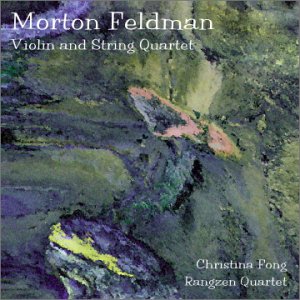
Violin and String Quartet Composer: Morton Feldman Performer: Christina Fong, Karen Krummel, et al. Ensemble: Rangzen Quartet Listening to this epic 2-CD chamber work is like watching a large block of ice melt for nearly two hours--excruciating sameness, tantilizing variation, in equal measures. A labor of love by all involved and the kind of thing that only small, independent labels will do. Bravo OgreOgress Productions |
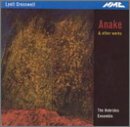
Anake & Other Works Composer: Lyell Cresswell Performer: Daniel Bell, William Conway, et al. Nmc Records - #77 Compositions for solo instruments (other than the piano) rarely get recorded which is a shame because sometimes--as in this case--the results are spectacular. New Zealand-born British composer Cresswell's warm and passionate solo turns for the violin, cello, flute, and piano are given convincing readings by members of The Hebrides Ensemble. |
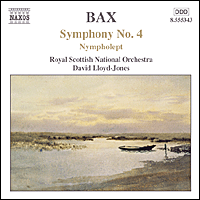
Symphony 4 / Overture / Nympholept Composer: Arnold Bax Peformers Lloyd-Jones, Royal Scottish Nat'l Orch Naxos - #8555343 Not in Vaughn Williams or Arnold's class as a symphonist, Bax nonetheless has a highly invidual voice and offers tremendous pleasures for those who look for less traveled paths. |
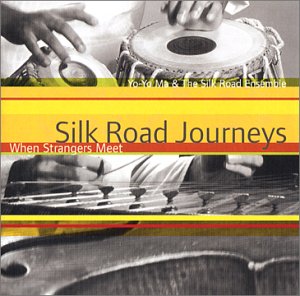
Silk Road Journeys Composer: Michio Mamiya, Franghiz Ali-Zadeh, et al. Performer: Yo-Yo Ma Ensemble: Silk Road Ensemble Sony - #89782 |
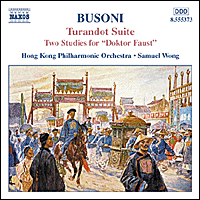
Turandot Suite Composer: Ferruccio Busoni Performers: Wong, Hong Kong Phil Orch Naxos - #8555373 Little-known suite that Busoni extracted from his incidental music to Gozzi's play, Turandot. Completed in 1905, and in eight descriptive sections, it is engaging late Romantic with hints of Straussian darkness. The Saraband and Cortege are from Busoni's better-known Doktor Faust. |
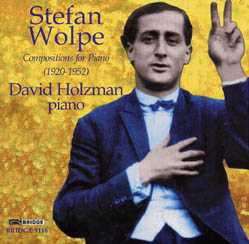
Compositions for Piano (1920-1952) Composer: Stefan Wolpe: Performer: David Holzman, piano BRIDGE 9116 From the nice people at Bridge Records comes an invaluable look at an early and largely forgotten modernist just in time for the Wolpe Centenary (1902-2002) Pianist
Holzman wins the uphill battle with such Wolpe knuckle-busters as the Sonata
No. 1 "Stehende Musik" (1925), the aptly named
|
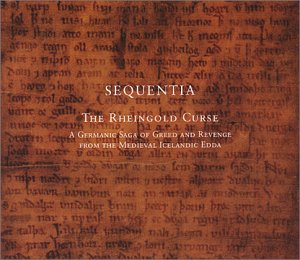
The Rheingold Curse: A Germanic Saga of Greed and Revenge from the Medieval Icelandic Edda Ensemble: Sequentia Marc Aurel Edition - #20016 Wagner's mother lode. Apocalyptic texts, atmospheric performances, bring to shattering life the age of the Vikings and the Valkyries when Gods and mortals jousted for the medieval soul. Thoughtful music for an age in which evil men once more live in caves and wreak havoc upon their fellow men. |
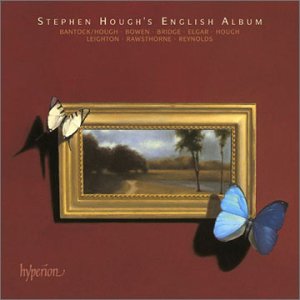
Stephen Hough's English Piano Album Composer: Alan Rawsthorne, Stephen Reynolds, et al. Performer: Stephen Hough Hyperion - #67267 Stephen Hough is among the most talented pianists today and also one of the most adventuresome. Rather than concentrating on the surefire crowd pleasers, he has followed his own tastes which have taken him down a less traditional path. His focus on neglected works by less-known composers is never less than rewarding and particularly so in this CD which showcases virtuoso piano pieces from English composers like Alan Rawsthorne and Stephen Reynolds as well as Elgar and Bridge. A delight from start to finish. |

Speaking Extravagantly Composer: David Stock Performer(s): Cuarteto Latinoamericano innova 563 Stock blends influences from Ives to minimalism, from Bartok to jazz, and from synagogue music to Schoenberg into a fresh and imaginative style of dramatic sweep and lyrical flight. His close collaboration with Cuarteto Latinoamericano, one of the world’s outstanding chamber ensembles, has produced a recording of great emotional power and driving rhythm, with blazing colors and a wide dynamic and expressive range. |
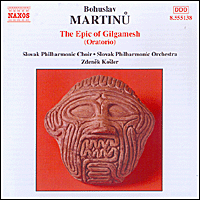
The Epic of Gilgamesh Composer: Bohuslav Martinu Conductor: Zdenek Kosler Performer: Ludek Vele, Stefan Margita, et al. Naxos - #8555138 Gilgamesh was an historical king of Uruk in Babylonia, on the River Euphrates in what is now modern Iraq; he lived about 2700 B.C. Many stories and myths were written about Gilgamesh, some of which were written down about 2000 B.C. in the Sumerian language on clay tablets in the script known as cuneiform and which still survive, providing continuing inspiration for writers and poet and musicians. One of the most inspired of these was Czech composer Bohuslav Martinu, who wrote this magnificent choral masterpiece based on the legend in 1955--only a couple of years before his death. Like virtually everything Martinu wrote, this one is indispensible. |
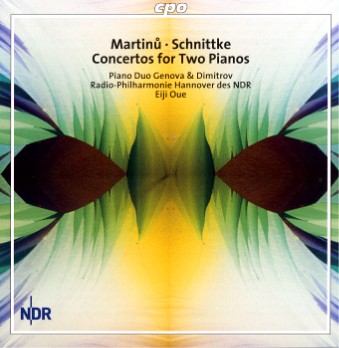
Concertos for Two Pianos Composer: Bohuslav Martinu, Alfred Schnittke Conductor: Eiji Oue Performer: Kathrin Rabus Cpo Records - #999804 An inspired pairing of works for two pianos by two of modern music's real giants. Martinu's concerto is big, sprawling and filled with musical color; Schnittke's is restrained with tensions that build into moments of momentous relief. Taken together, a testimony to the power of the imaginative to produce different, yet equally compelling, solutions to the same problems.
|
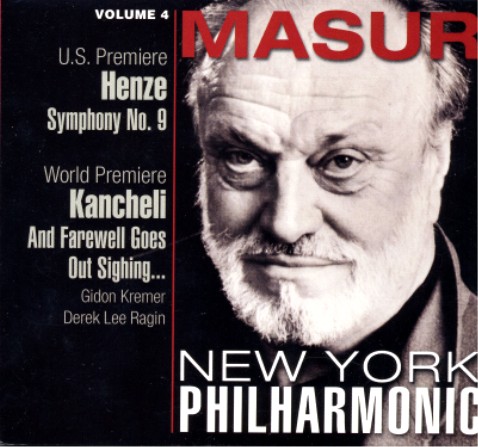
Symphony No. 9 Composer: Hans Henze Performer: NYPhilharmonic Berlin Radio Choir No record can quite capture the excitement of a live performance, but having been there the night the Henze 9th was recorded, I can testify that this CD comes very close to capturing the epic, shattering, passionate, heartbreaking pain of this incredible work. The Philharmonic plays magnificently, and the Berlin Radio Choir sings with total commitment this setting of seven harrowing poems by Hans-Ulrich Treichel, based on Anna Seghers's wartime novel "The Seventh Cross," about the re-capture and martyrdom by crucifixion of seven concentration camp escapees. No one who listens to this work will ever forget it. |
 |
Publisher: Duane Harper Grant (212) 582-4153 Editor: Jerry Bowles (212) 582-3791 Contributing Editor: Deborah Kravetz (C) Sequenza/21 LLC 2000 |